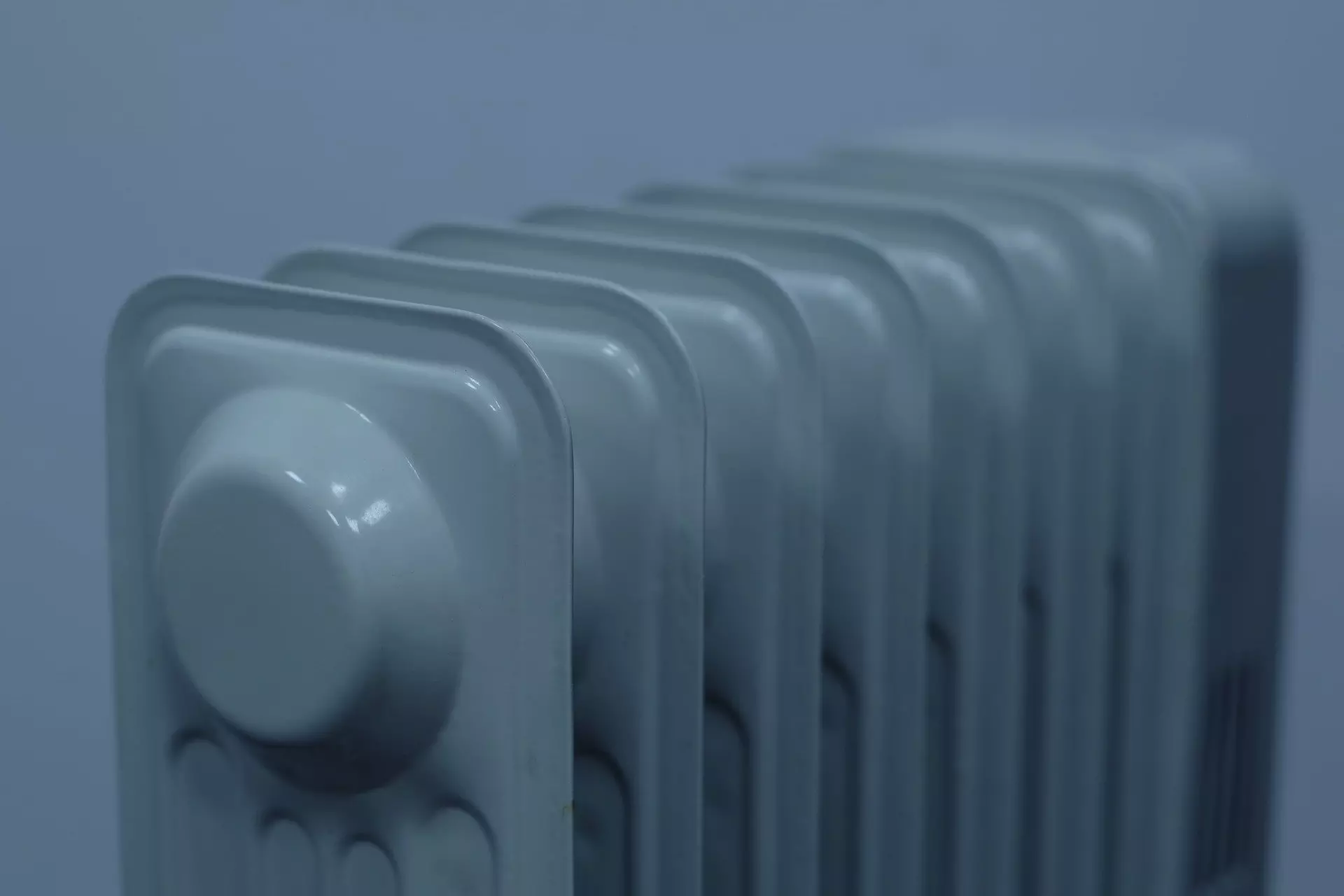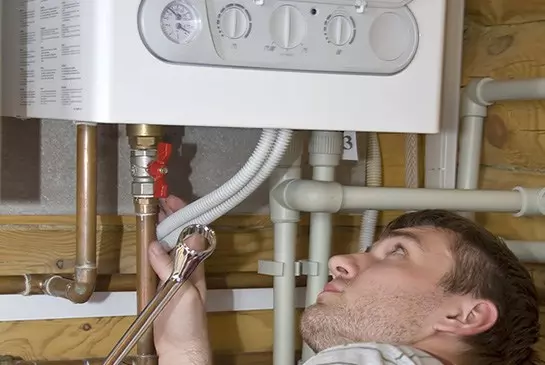A common question from homeowners is: is loss of heating an emergency? We look at what counts as a heating emergency and what to do after a loss of heating or hot water.
Hot water and heating make us feel secure in our homes, and when we lose this - it can feel scary and daunting. If your plumbing systems are not working as intended and you want emergency support, there are more things you should know.
What counts as a heating emergency?
When you experience partial or total loss of heating or hot water at your property, this seems like an urgent concern. Emergency repairs result from a maintenance request being made, with engineers quickly making their way to the distressed individual. However, not every emergency is treated the same, leaving some homeowners lost and waiting for support. Of course, plumbers and heating engineers aim to help everyone in need, but they must address emergency situations first.
Generally, if you experience partial loss of heating but are left with some warmth, this is not considered an emergency. Your boiler service is a requirement but is not an emergency, either. If you have dripping taps, one toiler that isn't working or something similar, these are considered problematic but not emergencies.
If you have partial loss of your central heating, smell gas or have other urgent repairs regarding your heating but are unsure of the circumstances relating to a heating emergency - keep reading this article.
Who Do I Call For Boiler Problems?

What To Do After a Loss of Heating or Hot Water
Before attempting to make any repairs or contact heating services, whether, after a total loss or partial loss of heating, you should check some factors around your property to help eliminate potential problems.
In cases where you have alternative options to generate hot water or heating, this is considered a serious problem and not a heating emergency.
Let's look at the first steps you should take after the loss of heating at your property:
Check The Prepayment Meter
If your boiler is on a prepayment meter, you should first check if you have credit remaining. If the meter is operating as intended, but there is no credit left, this is your responsibility to top up if you want heating again. Your boiler will not work without this. Alternatively, try switching the meter to emergency mode if possible.
If you do have credit, but the boiler is malfunctioning, check this meter for a blank screen or error message. If you smell gas or hear a leak, you should not tamper any further and contact a professional. Your gas provider should have contact details on the boiler if you do not have them to hand.
Check Each Radiator

The next thing you should do is check each individual radiator in the property. If you notice cold patches or entire cold radiators while other units warm with no problem, this fault is generally not a boiler problem.
Cold radiators signify something wrong in the central heating system; typically, a build-up of sludge, debris or air prevents good water supply from the boiler.
You will need to organise a power flush service (a high-pressure chemical flush) of the heating system from a professional if you do notice this. If you only have one radiator that isn't working, for example, this may need bleeding, and the problem could be fixed.
Is The Boiler Receiving Power?
Surprisingly, many heating emergencies originate from the boiler not receiving power because it's been turned off or the fuse board has tripped. Both are simple fixes for homeowners, but if you have regular electrical faults and the boiler struggles to turn on or stay turned on, you may need to contact a Gas Plumber.
Sometimes, you may receive heating but no hot water (or vice-versa), so you should establish where the problem lies. We will explain the differences in the section below.
Boiler Is Not Producing Hot Water, But Is Running The Central Heating
If your central heating is working as intended, but you are not getting hot water, no matter how long you run the tap, this is obviously a cause for concern.
Check your boiler for error codes, as this will help a plumber identify why this is happening. If you can access an electric shower, a kettle to boil water or pots and pans, you are generally not considered an emergency customer. This is a severe problem nonetheless, and you can be filed for an urgent repair.
Boiler Is Producing Hot Water But Not Heating

If the boiler produces hot water but no heating, this can be equally annoying and concerning. The first thing you should do is check the thermostat, ensuring it is working.
Many homeowners forget to check the batteries for wireless thermostats - this should be done first. If the device is set to 'on' but the heating is not reaching the desired temperature or warming at all, there are two potential causes.
1. Is It Set To Hot Water And Heating?
Many thermostats have two or three dials, giving you multiple options. With these dials, you can control the hot water temperature, central heating and the operation mode you want to be in.
If the current temperature is not warm enough, toggle the heating dial and increase the master heat. If you have done this, you should follow up by checking the boiler pressure gauge. If the boiler's pressure is too high or too low, you will experience heating issues. The gauge's needle should sit in the green zone, with anything above or below one dangerous. If in the red zone, contact a professional gas engineer.
2. Is There An Error Code Displayed On The Boiler?
Make a note of any error codes displayed on the boiler, as this can help explain what you saw to an engineer. From there, try resetting the dial on the boiler. In some instances, this will remove the error code from the boiler, hopefully bringing back your heating. If that does not work, attempt turning your boiler off and on again if you feel comfortable doing so.
Do You Have No Heating In A Rental Property?
If you live in a rented property, you may believe it's your landlord's responsibility to make required repairs to your heating when it goes on the fritz.
For your health and safety, you may not feel comfortable going near the boiler and attempting to fix the problem yourself - but is that the right call? You probably don't have the right tools to make the repairs, and you may not know what you're doing. Besides, is it your responsibility?

Is Your Landlord Responsible For The Boiler?
Your landlord has legal obligations to follow under the Landlord and Tenant Act 1985, meaning they must fix your broken boiler. Unless this has been stated otherwise in your tenancy agreement, and you would have been made aware of this change, your landlord (or an appointed representative) must make the repairs.
This means they can arrange for a Gas Safe engineer to fix the problem, and they do not have to fix it themselves. You are not expected to cover the costs when you did not cause the problem yourself.
Furthermore, your landlord must fix blocked drains, water leaks and faulty boilers within a certain timespan, meaning you cannot be left without heating for extended periods. Any longer than 24 hours and you can raise a complaint that your landlord is not completing their legal requirements.
Is Your Landlord Refusing To Fix The Broken Boiler?
If you find yourself stuck in a situation where your landlord refuses to fix the boiler or provide you with heat, you are within your rights to contact the police. Landlords are responsible for proper care and maintenance of the property's water, gas and electricity, including all appliances they provide.
If a landlord cannot or refuses to fix the boiler, they can provide you with heating equipment to warm your home to 65 degrees, but they must complete one of these steps. The council will measure the temperature in the property and enforce the landlord to fix the problem.
You will unlikely receive compensation for your heating loss unless you live in a council or housing association. Contact a solicitor and seek legal advice for specialised information if your landlord will not carry out necessary repairs.
Another alternative is offering to pay for the fix yourself, arranging with your landlord for this cost to be deduced from future rent payments. You need their written permission before agreeing to this, though. Unfortunately, you cannot refuse to pay your rent until they fix the problem, as you are bound by law to pay this on time as per your contract. If the problem persists and they do not fix the boiler, you can report this to environmental health for reinforcement.
Our advice is only to complete the fixes you feel comfortable doing and note all the problems and error codes you spot. Know your rights and what is considered an emergency; if you have access to hot water from another source, you will not be placed on an emergency list.
Do you need a emergency boiler repair in East London?
Contact us for emergency boiler repair services in Docklands, Waltham Forest, Tower Hamlets, Lewisham, Newham, Hackney, Southwark or Greenwich.

